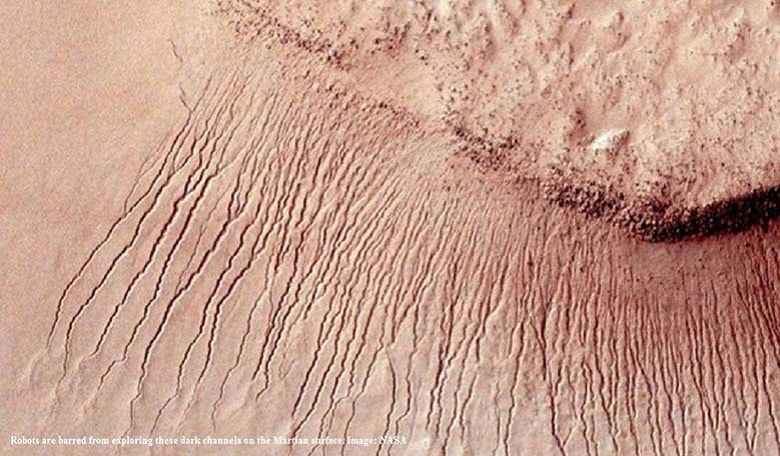This week, NASA said we could be closer than ever to finding life on Mars. But that revelation has also inspired concern.
As Christopher J. Newman wrote earlier this year, a new ethical framework for exploring space is very much needed today – to be enshrined in law, no less.
And our plans for Mars – which include a potential manned mission as early as sometime in the 2020s – underscore perfectly why our rules for protecting alien environments must drastically evolve.
As The New York Times has pointed out – today, NASA’s robotic explorers are banned from those areas of Mars that exhibit recurring slope lineae (RSLs). The RSLs, of course, have been cited as evidence of seasonal water presence on the surface of Mars, which, in turn, could potentially lead us to alien life.
The reason why the robots cannot travel there has to do with possible contamination fears, as the machines have not been properly sterilised.
Online, excitement over potential life on Mars has also been dampened by contamination talk, perhaps best summed up by this tweet from Emily Lakdawalla:
I wouldn't call this a reason to be excited -- it's a reason to be scared about sending contaminated bots & humans https://t.co/Rv2mwqhMo2
— Emily Lakdawalla (@elakdawalla) September 28, 2015










